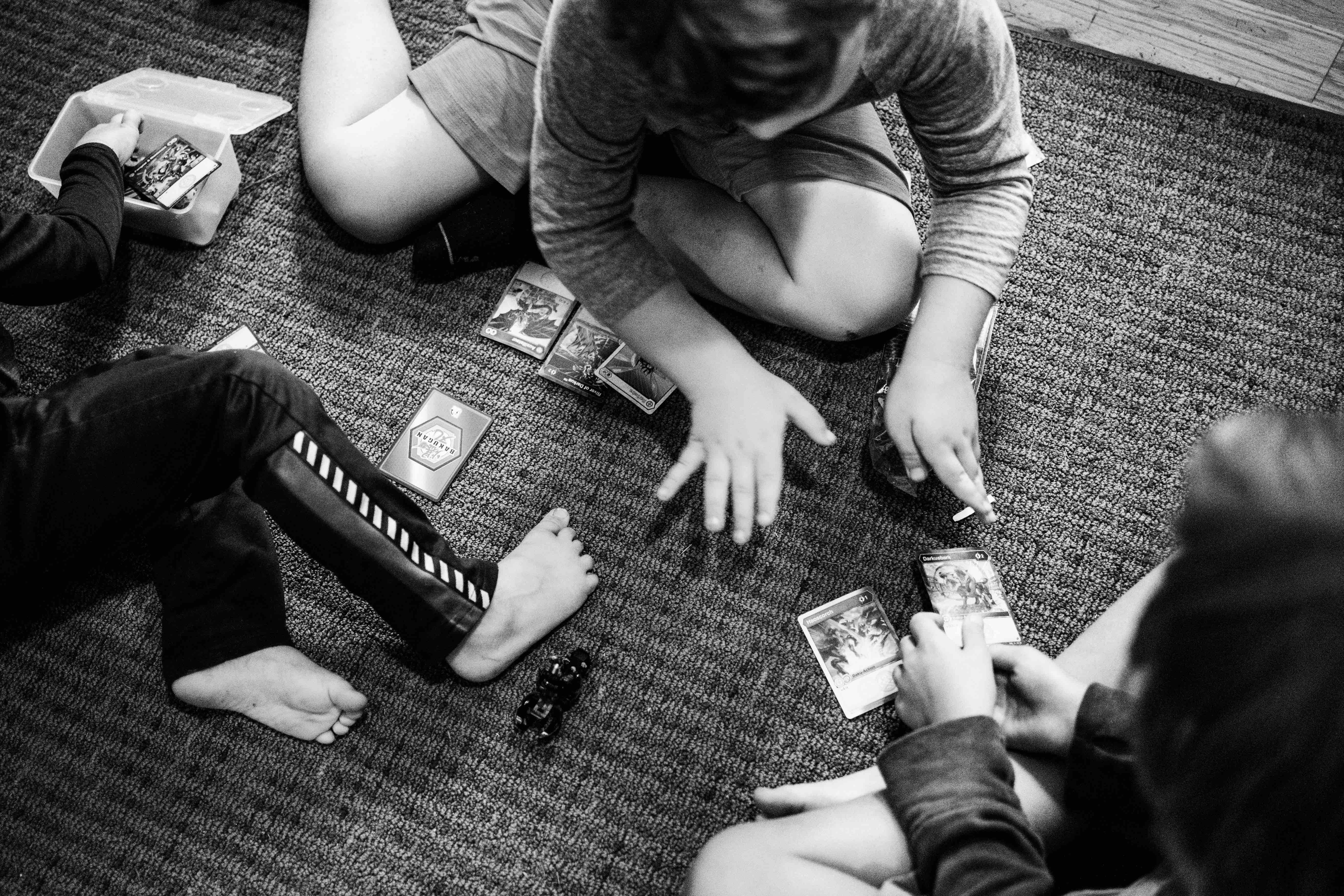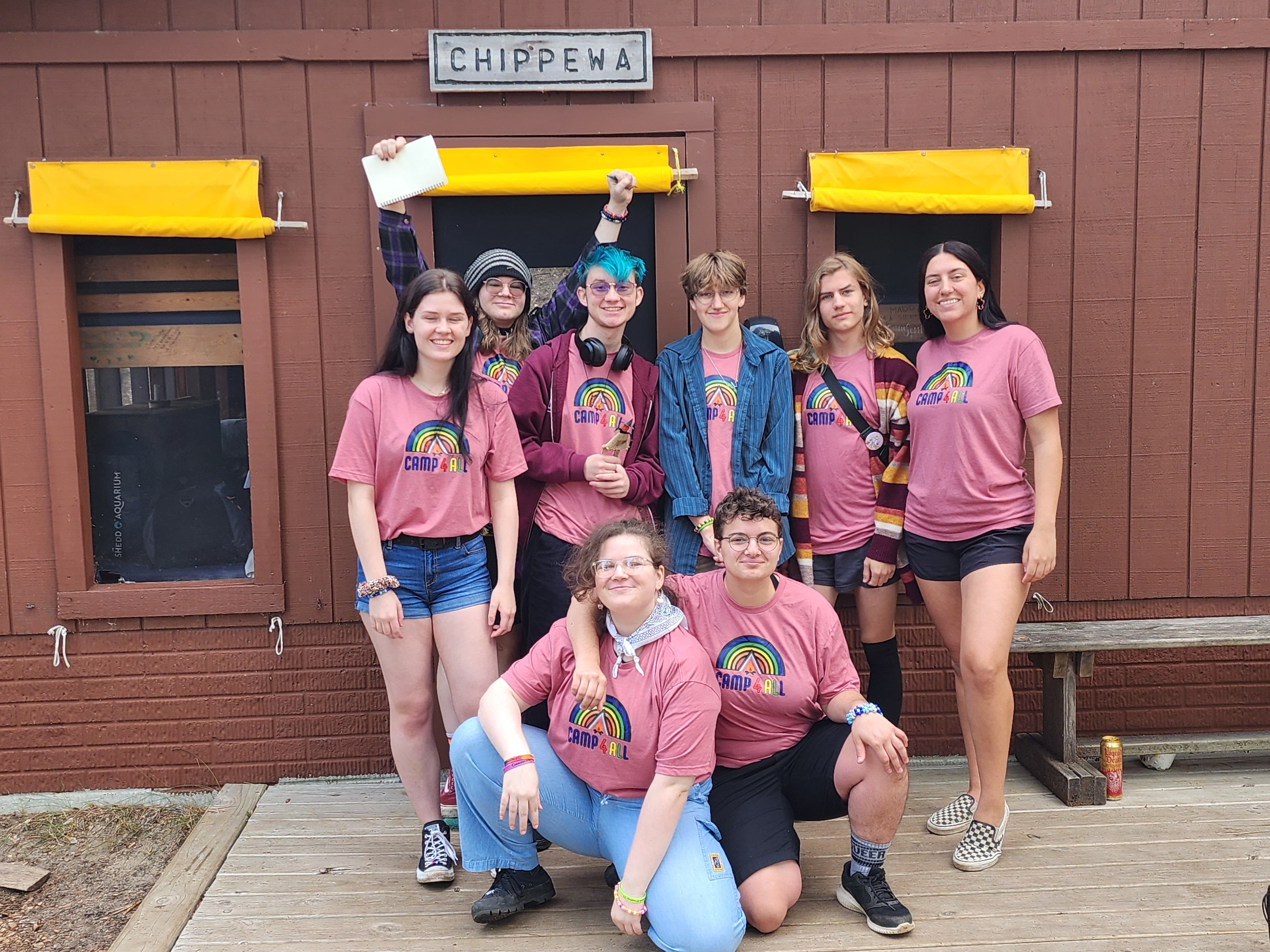The Case for Queer Summer Camps
How a week of joyful affirmation in a place where LGBTQ+ youth can just be themselves is life-changing

In the summer of 2015, I worked as a camp counselor in northern Michigan. It was one of the most enriching summers of my life.
Despite the overriding positive memories, when I reflect on that summer, I remain troubled by the gender divisions and enforced heteronormativity I observed daily at camp. Almost everything at camp was divided by gender binary, from meal times to evening activities. I led a cabin of teenage boys, many of whom reminded me of myself at that age; they had a propensity for pop music, reality TV and musical theater, and didn’t quite fit in with the other boys. I saw teenagers mocked and excluded for displaying flamboyant behavior amidst an underlying enforcement of what boys and girls should do and be like. Now, a generation on, I’m not confident that we have arrived at a place where queer teenagers can be completely comfortable in camp environments. But there are sure signs of hope.
Anyone who has lived the camp experience, be it over 10 years as a camper, or 10 weeks as a counselor, knows how special it is, and how it stays with you forever. Whether it’s the first place you feel independent, learn a skill that shapes your purpose or where you made friends for life, camp has unbounded potential to inform who we are. This is why it’s so important that campers are free to be who they are at camp.

Summer camp purports to be an open, free, relaxed time and, for the most part, it is. It can also be an environment sometimes rife with microaggressions for anyone who feels or is made to feel different. Though many queer adults, myself included, can cling to these instances of being ostracized as strengthening moments, they are inherently traumatic and shouldn’t have a place at summer camp.
The summer I was a counselor, I became aware of a boy, let’s call him Joey, who was best friends with all of the campers in my cabin and had been in their cabin for five years, but that year he had not been allowed to bunk with them. I later learned that the previous year, he and one of my campers had kissed. And his punishment was enforced ostracization away from his friends. I have often pondered what message that sent 13-year-old Joey. Instead of compassion and understanding around an innocent, curious queer experience, he was shown isolation and restriction.
There’s a conservative view that openly queer spaces force a sexual narrative on young people. As a society, we need to separate notions of queerness from sex. Though sexual attraction is eventually a distinguishing factor in many people’s queerness, a child knowing they’re gay doesn’t mean they want physical intimacy any more or less than their straight peers. And if the worst thing you can imagine is a teenage boy kissing another teenage boy, I have news for you: Sometimes that is what teenagers do at camp!
A foundation of all camps’ values is a sense of community. But community can be an elusive thing for some people, namely queer youngsters who are on the journey of identifying that they are somehow different, but might not have the language or social mechanisms yet to ease into predominantly heteronormative places. What if there were camps that could fast track a sense of this important community for these kids?
Enter Camp Unirondack in New York State. A camp that doesn’t brand itself as expressly queer, but is proud and intentional about radical acceptance. The approach is a judgment-free treatment of each camper as a worthwhile individual. When I watched their promotional video, I was moved when one of the attendees says that, at Unirondack, members of the LGBTQ+ community are not treated as if they are members of a community. They are treated like humans who aren’t branded with any label. This is founded on a principle so basic that it now sounds radical: Treat everyone equally and with kindness, completely regardless of who they are. What I love about the promise of Unirondack is that they acknowledge that all teenagers (all people for that matter) are different, and the best we can do is accept and embrace that.
Unirondack camper Kai Reynolds considers the camp a home away from home. Reynolds and his family have attended camp for many years, volunteering to help get the grounds ready for incoming campers and cleaning up when the summer is through. “The thing that is so different about Camp Unirondack from other spaces such as school or other camps is that it creates an environment where everyone can come together and laugh, learn, converse and really just be as they are inside and out, without having to worry about judged as they are,” Reynolds tells Pride Source. “It’s love, peace, creativity and comfort. When I’m there, I feel I can be the most genuine and present version of myself. I’ve learned more at Unirondack than I could ever learn from all my years at school.”
Unirondack puts an emphasis on campers’ autonomy, allowing campers, themselves, to govern what their time there looks like. Reynolds credits Unirondack’s inclusive environment to a dedicated team of staffers. “No one feels less than another,” they say. “The staff gives us the best experience possible at a time when it can be so hard to feel content with the person we are, surrounded by stigmas and hate. At Unirondack, all those things that make us different are embraced. Sometimes we need a reminder that we are all just people, one way or another, and Unirondack is that reminder.”

Here in Michigan, LGBTQ+ youth and LGBTQ+ families find sanctuary at Camp4All in Michigan (and Ohio) each summer. Founder David Yuhaus tells Pride Source that even campers who aren’t out enthusiasts say they value their time at the camp, which features a classic experience with rustic cabins and a woodsy environment. “I hear all the time about how families are looking for someplace safe for their kids,” Yuhaus says. “So many are looking for connections to carry with them into the school year and for people who are going through the same things that they are.”
Yuhaus says some families that come to Camp4All have tried out traditional summer camps with mixed success. “The biggest thing we see, though, is the number of trans campers — 50% or more of our campers are trans and the majority are just not comfortable in a traditional setting.” At Camp4All, the cabins and bathhouses are non-gendered and organized by age.
Yuhaus says about 80% of campers return to Camp4All and almost all who don’t return have aged out of the programs. He shared some feedback from previous campers. “Camp4All gave me a safe place to just be myself,” wrote one camper. “Everything there is so nice and fun and just in general welcoming. And it gives me something incredible to look forward to next year.”
Another camper wrote, “It gave me a place where I could truly let go of everyone’s standards and just fully be myself. I’ve never had a place where I could be that before — it’s amazing. I don’t need to censor my thoughts, personality or mask my neurodivergence.”
The promise of any camp is time away from parents. You can be a teenager who has secure attachments to your parents and still benefit from that time and space away to let new ideas grow and nurture new parts of yourself. This can be a tough pill for many parents to swallow. You haven’t done anything wrong if your child enjoys four weeks without you. Let there be a few weeks where you relinquish all control over what they’re doing and talking about.
Camp Out Family Camp, located in Southwest Michigan, offers a family camp experience for families who identify with any LGBTQ+ identity. Though I believe all families would benefit from the joys and challenges that camp holds, I am moved to think of the experience queer families could get to share with other families that look like them, given that there are rarely established communities of queer parents and families out in the world.
Do we need a higher number of expressly queer camps? Or should efforts be placed in improving how “regular” camps handle queerness? I’m not sure at this juncture, but after my summer in Michigan, I knew that something had to shift.
I was heartened this year to see that the camp I worked at opened a poll to let campers and parents choose the new names of the previously labeled “Boys Side” and “Girls Side.” The steps we take toward progress can be as simple as this.
I don’t believe queer summer camps are for every queer teenager, and with some luck, they won’t be the sort of thing we feel necessary in the coming generations. But I know what the programs being launched these days would have meant to me and the boys in my cabin.









